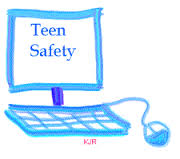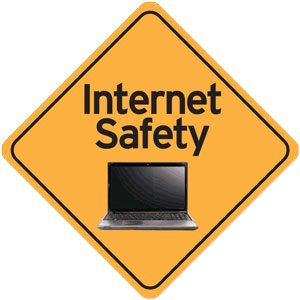 pamf.org Internet is one of the greatest inventions in this century. Teenagers particularly embrace technology and internet as if their life depend on it. Internet, TV and interactive video games can be an excellent sources of education and entertainment for teens. Internet has made it easy for everyone. Teens can use the internet to get information, to do research for school work and to communicate with friends and teachers. It can improve general knowledge, increased imagination and promote health education. But too much screen time can also have unhealthy side effects. Benefits of internet for teenagers:
pamf.org Internet is one of the greatest inventions in this century. Teenagers particularly embrace technology and internet as if their life depend on it. Internet, TV and interactive video games can be an excellent sources of education and entertainment for teens. Internet has made it easy for everyone. Teens can use the internet to get information, to do research for school work and to communicate with friends and teachers. It can improve general knowledge, increased imagination and promote health education. But too much screen time can also have unhealthy side effects. Benefits of internet for teenagers:
- Intellectual benefits – developing problem-solving and critical thinking skills by playing computer games, or developing morals by comparing family values with those found in fiction and documentary content.
- Educational benefits – encouraging reading, particularly after watching a program or movie based on a book.
- Social benefits – joining online clubs, which teaches children strategies for using social networking sites effectively and safely, or playing computer games with friends and family.
- Creative benefits – developing skills in imagination, art, music and media, through using software to create a picture, or being inspired by a TV show.
- Improve skills of reading, writing and critical thinking skills through using blogs, chat rooms and becoming involved in educational and beneficial forums.
- Political and social awareness by watching news, current affairs and documentaries through observing good role models in the media.
 susd12.org How parents can help their teens? Preventing our children from using the internet or mobile phones will not keep them safe online. Parents should take an active role in helping teens to use internet positively.
susd12.org How parents can help their teens? Preventing our children from using the internet or mobile phones will not keep them safe online. Parents should take an active role in helping teens to use internet positively.
- Parents must become computer literate and learn how to block inappropriate website.
- Talk to your teens about how they can stay safe online and what to do if they ever feel scared or uncomfortable. Have the conversation early and often.
- Set rules about what they can do and agree on boundaries of how they should behave. Establish and explain what the rules are for your teen when he or she is online. The rules depends on the age and maturity of your teen and what you feel is appropriate
Some of the rules that should be discussed are:
- How long can they be online?
- Whether they can use the internet daily or only on weekends?
- What time of the day can they use the internet?
- What sort of websites that they can surf?
- Can they post certain photos or videos?
- For younger teens, parents should first visit the website themselves.
- For older teens, agree on which websites they can visit and to ask you about any new websites that they want to visit.
- Keep the computer in a common area, where everyone can see what the teen is looking at online. Do not keep the computer in bedrooms where the teen is not supervised.
- Ask your teen to share their email or social media password with you so that you can monitor them,
- Use parental controls.
- Get a good filter program.
- Find out what online protection is offered by your teen’s school or anyplace where teens could use a computer without your supervision.
- Monitor your credit card and phone bills for unfamiliar account charges.
- If your teen reports cyber bully or inappropriate online exchange, take it seriously and act on it.
- Be aware your child viewing or falling prey to pornography online. Report to the police if needed.
For teens
- Never trade personal photographs in the mail or scan photographs over the Internet.
- Never reveal personal information, such as address, phone number, school name or location. Use only a screen name. Never agree to meet anyone you know from a chat room in person.
- Never respond to a threatening email or message.
- Always inform your parents about any communication or conversation that is threatening and uncomfortable for you
- Look at the age classification. You can use your own judgment on whether it is appropriate for your age.
- Look for programs with good role models. It can positively influence you. Good role models are people or characters who are doing things or behaving in a right way.
Reference
- http://kidshealth.org/parent/positive/family/net_safety.html
- https://internet-security-viruses.knoji.com/list-of-10-positive-and-negative-effects-of-the-internet/
- http://raisingchildren.net.au/articles/media_benefits.html
| Last Reviewed | : | 19 Nov 2015 |
| Writer | : | Dr. Norharlina binti Bahar |
| Accreditor | : | Dr. Hargeet Kaur a/p Basant Singh |







